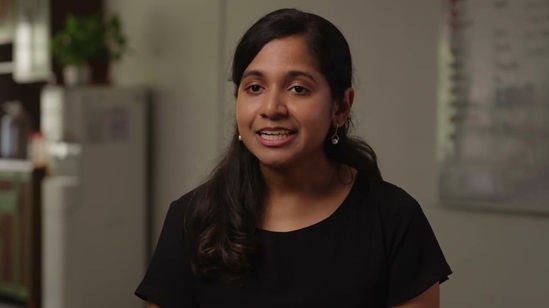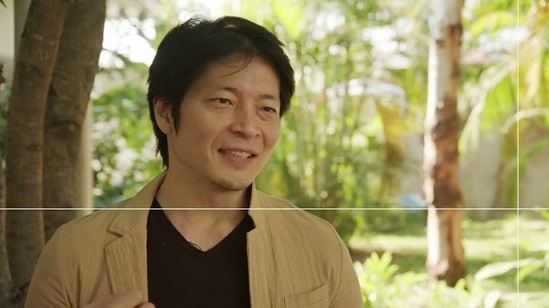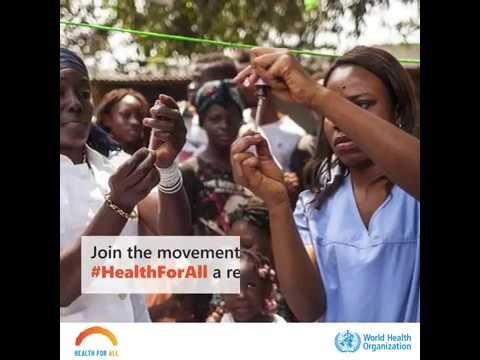BanBor's Village Chief Mailor Xong. BanBor Village in Lao People's Democratic Republic is part of CONNECT, an initiative created by a coalition of government partners, with the support of WHO, to empower local ownership of health.
Human rights
Human rights are universal rights inherent to all human beings, regardless of race, colour, sex, language, religion, political or other opinion, national or social origin, property, birth or other status.
The WHO Constitution was the first international instrument to enshrine the enjoyment of the highest attainable standard of health as a fundamental right of every human being.
In international human rights law, the right to health is a claim to a set of social arrangements – norms, institutions, laws and an enabling environment – that can best secure the enjoyment of this right. The right to health is an inclusive right, extending not only to timely and appropriate health care but also to the underlying determinants of health, such as access to health information, access to water and food, and housing. The right to health must be enjoyed without discrimination on the grounds of race, age, ethnicity or any other factor. Non-discrimination and equality requires states to take steps to redress any discriminatory laws, practices or policies.
Violations or lack of attention to human rights can have serious health consequences for many, including people with disabilities, indigenous populations, women living with HIV, sex workers, people who use drugs, transgender and intersex people. Health policies and programmes must therefore be designed and implemented through a human rights-based approach to improve the enjoyment of all people to the right to health.
The human rights-based approach (HRBA) to sustainable development can be summarized as:
- Goal: All development cooperation activities should respect and advance human rights.
- Process: Human rights standards and principles should guide all development cooperation and programming activities from start to finish.
- Outcome: Development cooperation activities should contribute to states respecting, protecting and fulfilling their human rights obligations and ensuring all people can claim their human rights. The human rights-based approach:
- Employs an intersectoral analysis to identify the inequities which lie at the heart of development and works to end discriminatory processes and practices, gender inequality and unjust distributions of power that lead to groups of people being left behind;
- requires that the human rights principles of universality, participation, accountability, equality and non-discrimination anchor development work
- focuses on developing the capacities of states and partners to advance and respect rights and the ability of people to claim their rights;
- ensures that plans, policies and processes of development cooperation are anchored in international human rights law, and advance and respect civil, cultural, economic, political and social rights and requires that states and partners are accountable for their international human rights obligations.
WHO in the Western Pacific supports Member States to ensure a human rights-based approach is applied across the design and implementation of health policies and programmes by:
- Strengthening the capacity of WHO and its Member States to integrate a human-rights based approach to health, including adopting practical steps to strengthen the quality, access, affordability and availability of health information and services;
- Engaging in technical collaboration to build national capacity through the development and implementation of relevant policies and programmes that advance the right to health through targeting discriminatory practices and addressing unjust power relations;
- Promoting free, meaningful and effective participation of all concerned stakeholders including non-state actors and men, women, boys and girls of diverse groups in the development and implementation of health policies or programmes that affect them;
- Advocating for health-related human rights, including the right to health in accordance with international law and international development processes.

/59748.tmb-300v.png?sfvrsn=9885965b_2)








